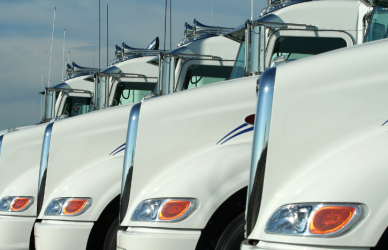California caused shockwaves throughout the trucking industry last week, as new regulations were passed that could see gasoline and diesel-powered trucks become obsolete in the state by 2042. The state Air Resources Board approved rules for all medium- and heavy-duty vehicles sold or registered in CA to be zero emission by 2036, despite outcry from leading trucking organizations.
Chris Spear, President of The American Trucking Associations said CARB’s decision to force motor carriers to purchase zero-emission vehicles “ignores the fact that these trucks are early-stage technologies and the infrastructure to support them does not exist.”
According to CARB, the rule would include the following stipulations:
- Fleet owners operating vehicles for private services such as last-mile delivery and federal fleets such as the Postal Service, along with state and local government fleets, will begin their transition toward zero-emission vehicles starting in 2024.
- The rule includes the ability to continue operating existing vehicles through their useful life.
- Due to the impact that truck traffic has on residents living near heavily trafficked corridors, drayage trucks will need to be zero-emissions by 2035.
- All other fleet owners will have the option to transition a percentage of their vehicles to meet expected zero-emission milestones, which gives owners the flexibility to continue operating combustion-powered vehicles as needed during the move toward cleaner technology. The flexibility is intended to take into consideration the available technology and the need to target the highest-polluting vehicles.
- Last mile delivery and yard trucks must transition by 2035, work trucks and day cab tractors must be zero-emission by 2039, and sleeper cab tractors and specialty vehicles must be zero-emission by 2042.
ATA’s Spear fired back calling CARB’s actions “unrealistic.”
“Today, an unelected Board in California voted to force trucking companies to buy zero-emission trucks,” said Spear. “Fleets are just beginning to understand what it takes to successfully operate these trucks, but what they have learned so far is they are significantly more expensive, charging and refueling infrastructure is nonexistent, and ZEVs are not necessarily a one-for-one replacement — meaning more trucks will be needed on California roads to move the same amount of freight.
“California is setting unrealistic targets and unachievable timelines that will undoubtedly lead to higher prices for the goods and services delivered to the state and fewer options for consumers. As it becomes clear that California’s rhetoric is not being matched by technology, we hope the Board will reverse course and allow trucking companies the freedom to choose the clean technologies that work best for their operations.
“ATA-member companies work tirelessly to deliver the nation’s freight while deploying the cleanest technologies available. Over the past 35 years, those efforts have produced a 98% reduction in truck emissions. We continue to say, ‘Yes’ to advancing cleaner technologies, but achievable targets and realistic timelines matter.”
Source: truckersnews











